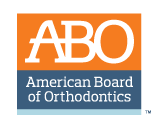January 29th, 2025
Plaque is a sticky subject! It sticks to the enamel of our teeth above and below the gum line, and it collects around braces. Plaque is one of the major causes of tooth decay and gum disease, and our teeth are under daily attack by this filmy menace. What are the facts about plaque, and…
Continue Reading
January 22nd, 2025
A lot of our patients are curious about the difference between an orthodontist and a dentist. In fact, one of the most common questions we hear at Gregg Ortho is, “Dentists and orthodontists are all the same, right?” A general dentist is your primary dental care provider. Dentists diagnose, treat, and manage your overall oral…
Continue Reading
January 15th, 2025
You’ve taken the first step toward a healthier and more beautiful appearance by getting braces at Gregg Ortho, and you’re probably wondering what comes next. The first week is the period of biggest adjustment, and there’s a lot to learn in this short time. Don’t worry; in a few short days your braces will feel…
Continue Reading
January 8th, 2025
One of the most common reasons for getting braces is because there’s just not enough room for all your teeth to fit next to each other evenly. The result is overlapping and crooked teeth. What’s the first step in creating the space you need? Well, that depends on just how much room you need to…
Continue Reading





